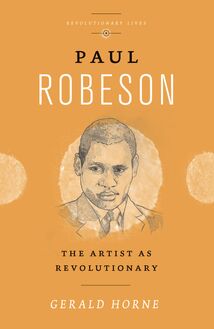-
 Univers
Univers
-
 Ebooks
Ebooks
-
 Livres audio
Livres audio
-
 Presse
Presse
-
 Podcasts
Podcasts
-
 BD
BD
-
 Documents
Documents
-
- Cours
- Révisions
- Ressources pédagogiques
- Sciences de l’éducation
- Manuels scolaires
- Langues
- Travaux de classe
- Annales de BEP
- Etudes supérieures
- Maternelle et primaire
- Fiches de lecture
- Orientation scolaire
- Méthodologie
- Corrigés de devoir
- Annales d’examens et concours
- Annales du bac
- Annales du brevet
- Rapports de stage
La lecture à portée de main
Vous pourrez modifier la taille du texte de cet ouvrage
Découvre YouScribe en t'inscrivant gratuitement
Je m'inscrisDécouvre YouScribe en t'inscrivant gratuitement
Je m'inscrisEn savoir plus
Vous pourrez modifier la taille du texte de cet ouvrage
En savoir plus

Description
Clifford D. Conner argues that what was unique about Marat - setting him apart from all other major figures of the revolution, including Danton and Robespierre - was his total identification with the struggle of the propertyless classes for social equality. Fresh ideas surrounding the Champs de Mars Massacre, his assassination, the cult of Marat and the Légende Noire are all explored.
Preface
Introduction - The Phantom and the Historians
1. The Early Years
2. 1765–1789 – The Physician and the Physicist
3. January 1789–June 1791 – From the Estates General to the King’s Flight
4. July 1791–September 1792 – From the Champs de Mars Massacre to the September Massacres
5. September 1792–July 1793 – From the Convention Elections to the Assassination
Conclusion - From the Cult of Marat to the Légende Noire and Beyond
Notes
Index
Sujets
Informations
| Publié par | Pluto Press |
| Date de parution | 08 mai 2012 |
| Nombre de lectures | 0 |
| EAN13 | 9781849646802 |
| Langue | English |
| Poids de l'ouvrage | 4 Mo |
Informations légales : prix de location à la page 0,0748€. Cette information est donnée uniquement à titre indicatif conformément à la législation en vigueur.
Extrait
Jean Paul Marat
Revolutionary Lives
Series Editors: Brian Doherty, Keele University; Sarah Irving, University of Edinburgh; and Professor Paul Le Blanc, La Roche College, Pittsburgh
Revolutionary Lives is a book series of short introductory critical biographies of radical political figures. The books are sympathetic but not sycophantic, and the intention is to present a balanced and where necessary critical evaluation of the individual’s place in their political field, putting their actions and achievements in context and exploring issues raised by their lives, such as the use or rejection of violence, nationalism, or gender in political activism. While individuals are the subject of the books, their personal lives are dealt with lightly except in so far as they mesh with political issues. The focus of these books is the contribution their subjects have made to history, an examination of how far they achieved their aims in improving the lives of the oppressed and exploited, and how they can continue to be an inspiration for many today.
Published titles:
Leila Khaled: Icon of Palestinian Liberation
Sarah Irving
Jean Paul Marat: Tribune of the French Revolution
Clifford D. Conner
Gerrard Winstanley: The Digger’s Life and Legacy
John Gurney
www.revolutionarylives.co.uk
First published 2012 by Pluto Press 345 Archway Road, London N6 5AA
www.plutobooks.com
Distributed in the United States of America exclusively by Palgrave Macmillan, a division of St. Martin’s Press LLC, 175 Fifth Avenue, New York, NY 10010
Copyright © Clifford D. Conner 2012
The right of Clifford D. Conner to be identified as the author of this work has been asserted by him in accordance with the Copyright, Designs and Patents Act 1988.
British Library Cataloguing in Publication Data A catalogue record for this book is available from the British Library
ISBN 978 0 7453 3194 2 Hardback ISBN 978 0 7453 3193 5 Paperback ISBN 978 1 84964 679 6 PDF ISBN 978 1 84964 681 9 Kindle ISBN 978 1 84964 680 2 ePub
Library of Congress Cataloging in Publication Data applied for
This book is printed on paper suitable for recycling and made from fully managed and sustained forest sources. Logging, pulping and manufacturing processes are expected to conform to the environmental standards of the country of origin.
10 9 8 7 6 5 4 3 2 1
Designed and produced for Pluto Press by Chase Publishing Services Ltd Typeset from disk by Stanford DTP Services, Northampton, England Simultaneously printed digitally by CPI Antony Rowe, Chippenham, UK and Edwards Bros in the United States of America
To three American prisoners of conscience
Lynne Stewart
Mumia Abu-Jamal
Bradley Manning
To learn more about these courageous victims of injustice, go to
www.MaratScience.com
and click on "Dedication"
Contents
List of Illustrations
Preface
Acknowledgment
List of Abbreviations
Introduction: The Phantom and the Historians
1 The Early Years
2 The Physician and the Physicist: 1765–1789
3 From the Estates General to the King’s Flight: January 1789–June 1791
4 From the Champ de Mars Massacre to the September Massacres: July 1791–September 1792
5 From the Convention Elections to the Assassination: September 1792–July 1793
Conclusion: From the Cult of Marat to the Légende Noire and Beyond
Notes
Index
List of Illustrations
1 Jean Paul Marat
2 Front cover of Marat’s journal
3 Champ de Mars Massacre: Lafayette orders his troops to fire on demonstrators
4 Marat, pistol in hand, addresses the Convention for the first time
5 Marat, crowned with laurel leaves, is carried by a crowd celebrating his acquittal by the Revolutionary Tribunal
6 1871 right-wing cartoon
Preface
I have long been wary of authors who claim to have discovered some startlingly important aspect of history that all previous authors had somehow overlooked. Now I find myself reluctantly having to make a claim almost (but not quite) like that.
Jean Paul Marat was a key leader of what was arguably the most important of all social revolutions. And yet there have been virtually no adequate biographies of Marat published in the English language. Why not?
I am hard pressed to answer that question. The reason that I am not claiming to be the only adequate biographer of Marat is contained in the qualifying phrase "in the English language." Numerous fine biographies have appeared in French my personal favorites are Jean Massin’s and Olivier Coquard’s 1 but none have been published in English translation. The present volume is intended to remedy that glaring omission in the literature on the French Revolution.
As for previous English-language biographies of Marat, there have been a grand total of two published in the past hundred years. One was by the distinguished historian Louis Gottschalk and the other was by me. 2 Gottschalk’s, which was originally published in 1927 and reissued, unchanged, in 1967, is not simply out of date, but in my opinion is also seriously flawed in its interpretation of Marat’s role in the Revolution.
Gottschalk portrayed Marat as an accidental figure on the stage of history an ultraradical demagogue who gained immense notoriety but should not be counted among the authentic leaders of the Revolution. In 1997 I published a biography of Marat to challenge that notion. Au contraire , I argued, Marat was a highly effective leader of the French Revolution who earned his influence through the consistency and principled nature of his leadership.
My 1997 biography of Marat is not out of date, but I felt it would now be useful to write another one with a different focus. Although the earlier book did not ignore Marat’s revolutionary activity, it put more emphasis on his much longer career as a scientist. That was an aspect of his life that had not previously been treated adequately even by French biographers.
The volume you now hold in your hands, however, centers its attention squarely on Marat’s political career as journalist, agitator, and leader of the French Revolution during the last four years of his life, 1789–93. That, after all, is the basis of his historical importance and what he is rightfully remembered for. Without Marat, the French Revolution may well not have resulted in the social transformation of France, Europe, and the world.
Marat’s pre-Revolutionary careers as a medical doctor and an experimental physicist are not irrelevant to his later development, however. To fully come to grips with this enigmatic figure, it is necessary to take that formative part of his life into account. For that reason, I have created a website devoted primarily to an exposition of Marat’s medical and scientific work during the years 1765 through 1789, which I invite readers of this volume to peruse (www.MaratScience.com).
* * *
The French Revolution dealt the death blow to the traditional social structure not only in France but throughout Europe. The old regime had been founded on the principle of natural inequality: that some people were by birth superior to others and thereby entitled to special privileges. The Revolution produced a social order based on the opposite premise of human equality, from which derived the rights to equality before the law, representative government, and guarantees of civil liberties.
But to Marat these gains, however important, did not go nearly far enough. They amounted to a great leap forward in political equality but not economic equality. The rich and poor gained equal rights to sleep under the bridges of Paris, but the wretched of the earth remained mired in their wretchedness. What set Marat apart from all other major figures of the Revolution from Mirabeau to Brissot to Danton to Robespierre was his total identification with the struggle of the propertyless classes for full social equality.
The ever-deepening gulf between the billionaires and the slumdogs in today’s world testifies to the continuing relevance of Marat’s revolutionary perspective. Properly understood, the triumphs and failures of his career shed light on some timeless and universal aspects of the revolutionary process that can benefit and perhaps inspire participants in the current struggles for social change. May they triumph, and the sooner the better.
Clifford D. Conner
November 2011
Acknowledgment
This book owes its existence first of all to Paul Le Blanc and the debt is twofold. It was he who in 1997 originally asked me, on behalf of what at that time was Humanities Press, to write a biography of Marat, which I did. And then it was also he who more recently asked me, on behalf of Pluto Press, to write the biography of Marat you are presently holding in your hand. Thank you twice, Paul.
List of Abbreviations
Actes
Actes de la Commune de Paris pendant la Révolution
(Paris, 1894–1914)
AP
Ami du peuple
(September 1789–September 1792)
Arch. Parl.
Archives Parlementaires de 1787 à 1860
(Paris, 1867 et seq.)
Correspondance
La Correspondance de Marat , C. Vellay, ed.
(Paris: Charpentier et Fasquelle, 1908)
JRF
Journal de la République Française
(September 1792–March 1793)
MHdS
Marat homme de science? , J. F. Lemaire and J. P. Poirier, eds.
(Paris: Synthélabo, 1993)
Mon. univ.
Gazette nationale; ou, le Moniteur universel
(Paris, 1789 et seq.)
Œuvres
Œuvres de Marat , A. Vermorel, ed.
(Paris, Décembre-Alonnier, 1869)
Pamphlets
Les Pamphlets de Marat , C. Vellay, ed.
(Paris: Charpentier et Fasquelle, 1911)
PRF
Publiciste de la République Française
(March 1793–July 1793)
Rév. France/Brabant
Révolutions de France et de Brabant
(Paris, November 1789–July 1792)
Soc. Jac.
La Société des Jacobins: Recueil de documents , A. Aulard, ed.
(Paris, 1889–97)
Bibliographical Note: The sources are given in the notes. For a comprehensive bibliography, go to www.MaratScience.com and click on "Bibliography."
Introduction The Phantom and the Historians
The French Revolution divided France
-
 Univers
Univers
-
 Ebooks
Ebooks
-
 Livres audio
Livres audio
-
 Presse
Presse
-
 Podcasts
Podcasts
-
 BD
BD
-
 Documents
Documents
-
Jeunesse
-
Littérature
-
Ressources professionnelles
-
Santé et bien-être
-
Savoirs
-
Education
-
Loisirs et hobbies
-
Art, musique et cinéma
-
Actualité et débat de société
-
Jeunesse
-
Littérature
-
Ressources professionnelles
-
Santé et bien-être
-
Savoirs
-
Education
-
Loisirs et hobbies
-
Art, musique et cinéma
-
Actualité et débat de société
-
Actualités
-
Lifestyle
-
Presse jeunesse
-
Presse professionnelle
-
Pratique
-
Presse sportive
-
Presse internationale
-
Culture & Médias
-
Action et Aventures
-
Science-fiction et Fantasy
-
Société
-
Jeunesse
-
Littérature
-
Ressources professionnelles
-
Santé et bien-être
-
Savoirs
-
Education
-
Loisirs et hobbies
-
Art, musique et cinéma
-
Actualité et débat de société
- Cours
- Révisions
- Ressources pédagogiques
- Sciences de l’éducation
- Manuels scolaires
- Langues
- Travaux de classe
- Annales de BEP
- Etudes supérieures
- Maternelle et primaire
- Fiches de lecture
- Orientation scolaire
- Méthodologie
- Corrigés de devoir
- Annales d’examens et concours
- Annales du bac
- Annales du brevet
- Rapports de stage




















